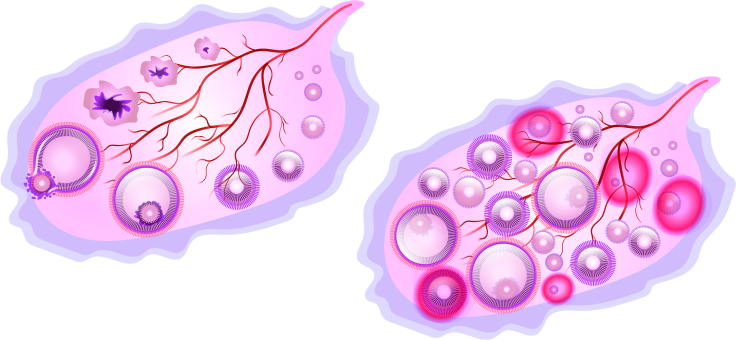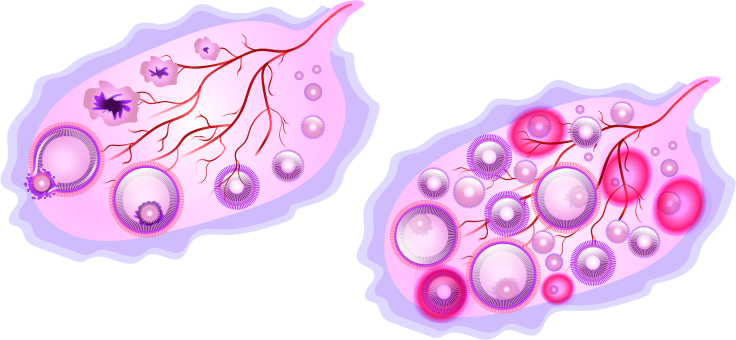PCOS In Women Ups Risks Of Autism, ADHD And Other Neuropsychiatric Disorders In Children: Study
KEY POINTS
- Maternal PCOS was associated with neuropsychiatric and developmental disorders in children
- The risk was found to be higher if the mothers had obesity
- This is the first study ever to compare the relationship between these conditions
The risk of neuropsychiatric disorders was 1.3 times higher in children born to mothers with Polycystic ovary syndrome (PCOS), a new study has suggested. This indicated that 700 more kids per 100,000 are born with some kind of mental health problems if the mother was diagnosed with PCOS.
PCOS has emerged as one of the leading and most talked about female reproductive health issues in recent times. Although it increases a woman’s risk of infertility, the condition is treatable and women with PCOS do have chances of getting pregnant. But the new study warns that children born to mothers with PCOS might be at a higher risk of speech delay, behavioral problems, autism and Attention deficit hyperactivity disorder (ADHD).
The international team of researchers who conducted this study also found that the risk of neurodevelopmental disorders in children born to women with PCOS further increased if the mothers were obese, had gestational diabetes, or delivered the child via a c-section.
The study published in the journal Human Reproduction is not only the first to find a relation between PCOS and such a wide range of disorders including emotional & behavioral problems but is also one of the largest studies so far. Being just an observational study, it didn't show with certainty that PCOS causes the psychiatric and neurodevelopment problems, but just that there is an association between the two.
PCOD is a common hormonal disorder that includes a set of symptoms in women due to higher levels of male hormones and impaired ovarian function. It affects 6-20% of women in reproductive age and causes irregular menstrual cycles, increased risk of miscarriage, hirsutism, acne, obesity and diabetes.
The researchers compared data from more than 24,000 children born to women with PCOS with more than 1,073,000 kids born to those without the condition. They also followed them until the end of 2018.
"We found that children born to mothers with PCOS have an increased risk of neurodevelopmental or psychiatric disorders. The higher risk applied to a number of psychiatric diagnoses, including mood, anxiety, eating and sleeping disorders, intellectual disabilities, specific developmental, autism spectrum, attention deficit hyperactivity, conduct and tic disorders, and other behavioral and emotional disorders," said Catharina Lavebratt, study’s co-author and an associate professor at the Karolinska Institutet.
The researchers also found that the increased risk of neurodevelopmental disorders was independent of the babies’ sex as well as maternal obesity.
Children of mothers with PCOS were 1.3 times more likely to be diagnosed with psychiatric disorders. In particular, the risk of sleeping disorders increased 1.5 times, and that of ADHD and tic disorders, intellectual disabilities, autism and eating disorders were 1.4 fold higher.


© Copyright IBTimes 2025. All rights reserved.






















